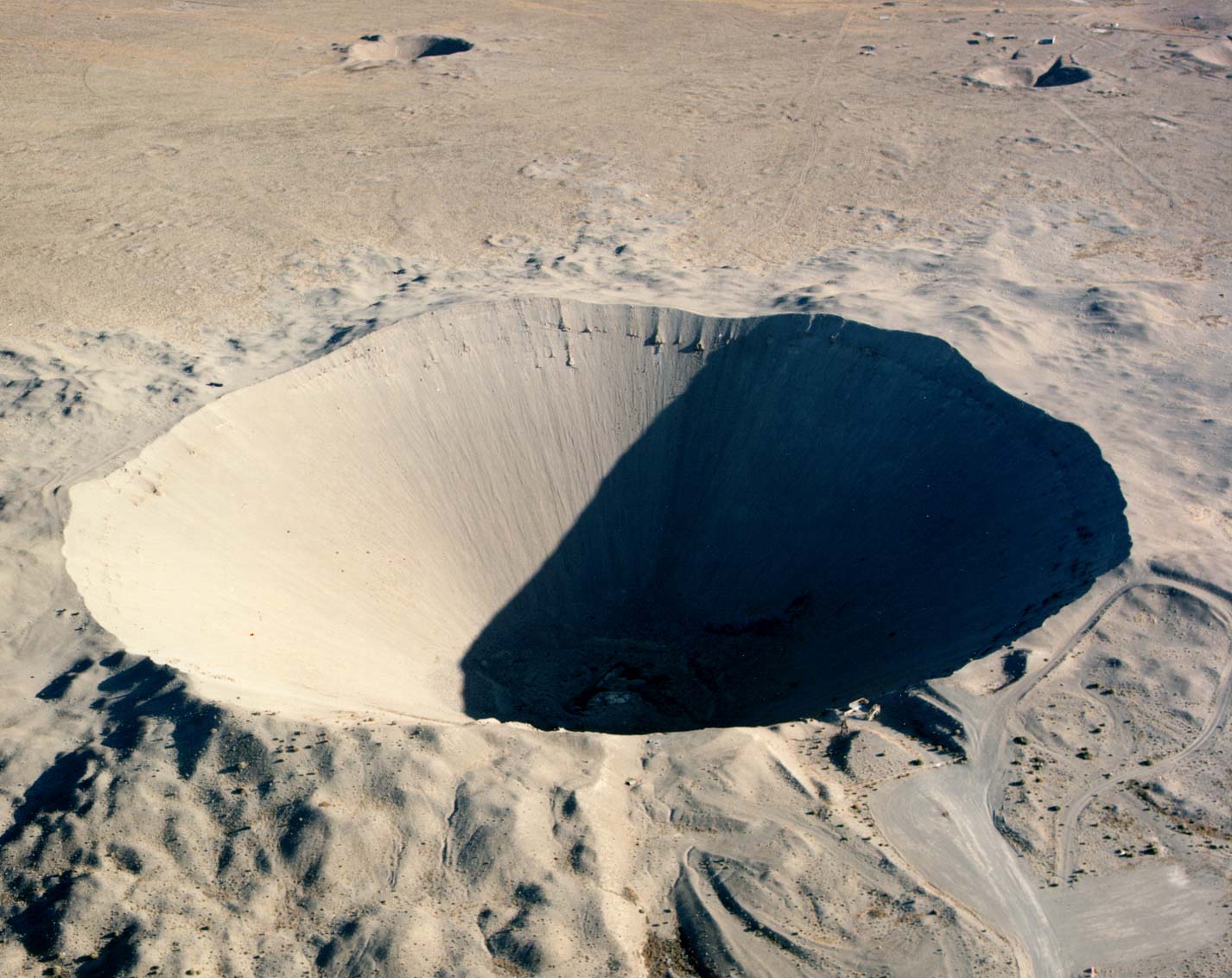 |
| Plowshare Sedan Crater, via Wikipedia |
in 2015, the ATLAS (Asteroid Terrestrial-Impact Last Alert System) is expected to be online, with warnings ranging from a day to three weeks. In a strange mirror, the sizes of asteroid impacts, like nuclear ones, are also measured in megatons (the above linked site calls a "city killer" 5 megatons, and a "county killer" 100 megatons (like the Tsar Bomba).
One big ol' pothole in a plan like this is the fact that it's illegal to put nuclear weapons in space, per the Outer Space Treaty of 1967 (which I mentioned while discussing mining on the Moon).
I've got a question I'm not smart enough to answer, though.
See, with an implosion device, you have a disc of plutonium, surrounded by conventional explosives. The explosives are what sets off the chain reaction to super criticality, which makes the nuclear explosion happen. To reach escape velocity from Earth, as any device implemented to intercept a meteor would have to do, a lot of pressure is exerted upon the object leaving our planet. So, are the G forces exerted by launch enough to set off that chain reaction?
Well, the problem is here is I'm not smart enough to do rocket science. I know escape velocity from Earth is essentially 25,000 miles an hour, but I don't know how much pressure that exerts on any one item in a spaceship designed to deal with such rigorous pressures. Comparatively, I don't know the force exerted by that initial explosion/compression on the nuclear payload. So. One can find a bunch of equations online with alchemical looking symbols in them (I'm sure they're Greek or whatever), and if the numbers are equal then yes, launching a conventional nuke in a conventional rocket would on its own trigger the chain reaction that results in a nuclear explosion. Which would mean the asteroid would not, in fact, get blown up and Earth would not be saved.
The answer is probably no. Or, the question has already occurred to somebody and they would make sure the answer was no. I know at least one person who's math minded who I will get to do the equations for me (once I find them again, of course).
No comments:
Post a Comment